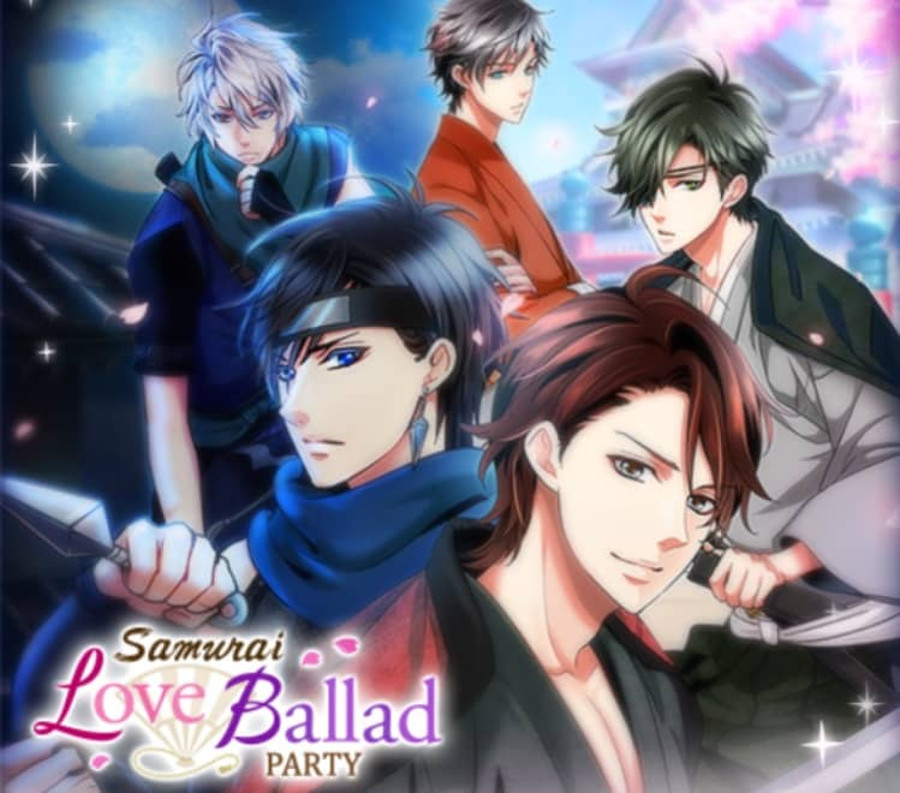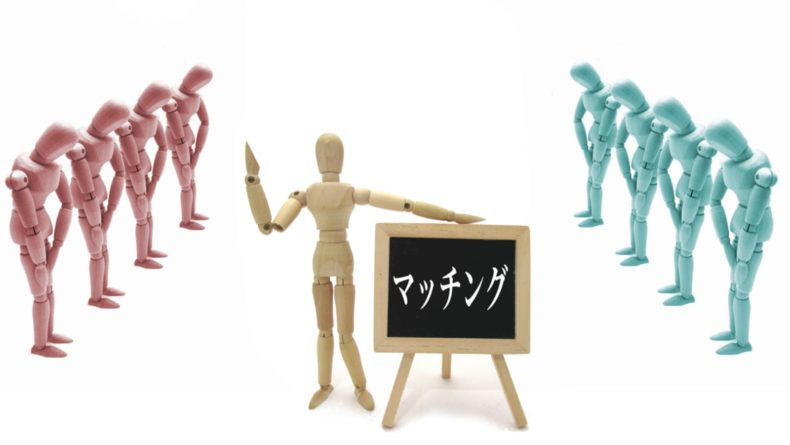Otome Games: The Most Entertaining Way To Rethink Your Love Life?
Love Is Just A Few Taps Away
Push play and your date can be a dashing prince, sexy star, or a roguish samurai.
What can’t smartphones do? You can take gorgeous photos, shop, study a language, even get your air conditioner cleaned. Of course, you can also use it to find people — actual people — to date, but what if you’re after something to level up your love life without having to endure endless entries of self-absorbed abs selfies? Well, (voice lowered), ladies, there is a way — Japan’s otome games are here to level up your love life and they are totally addictive.

What’s an ‘Otome Game’?
Otome games are story-based video games that feature a leading character (usually the user) who interacts and eventually dates (or marries!) one of several characters in the game world. The games are done in the first-person format and are usually written in conversational dialogue. The player (you) is presented with a situation or question from characters in the game which have multiple possible replies to choose from in order to continue the game. The reply that you choose will affect how the character replies, and will ultimately determine the outcome of that chapter in the story. Otome games typically have several chapters or seasons for each character within a given game title. You can replay chapters over again with different answers, and see different versions of the story ending too.
View this post on Instagram
Otome games are like romance-based “choose your own adventure” books. And what’s even better is that a number of Japanese companies, like Voltage, Inc., and Cybird, also produce localized English versions of their most popular games, which means that overseas-based users can play them without having to speak Japanese (while technically dating a Japanese virtual guy!)
Why are Otome Games so appealing?
There are several reasons for the games’ sustained and growing popularity. For starters, being romanced in a fairytale fashion is something that many women dream about. Women of all ages can go out and date in the real world, but many choose not to. I talked to friends that play the games as well as people I’ve met via game discussions to get some insight into their appeal.
“I don’t have time for a serious boyfriend so I have a friend with benefits. But when I feel romantic, I play my favorite game. That’s enough for me,” says 31-year-old Mayu.
Many Japanese women are also facing the issue of partially (or depending on the case, completely) losing the romance with their partners once they’ve become wives and especially, mothers. For many, marriage and motherhood means becoming known as okaasan (mom) and with it, anything romantic (and quite often, sexual) in their lives begins to fade away. If you’re looking for proof of this, log in on any mom chat board and you’ll see hundreds of concerned posts about that.
“I’m glad that I got married and had children, but being ‘just’ a mother hurts. My husband used to be so sweet to me when we first got married. I don’t remember the last time he even gave me a kiss on the cheek.” (Yuuko, Japanese, 59).
View this post on Instagram
Otome games are filled with idealized outings with your partner, elaborate weddings that not many could ever afford in their real lives, and romantic gestures that continue well after the characters get married and have children.
There is also the element of escapism and acting out on your fantasies — without ever having to suffer the consequences. With your game in hand, you can leap out and enjoy a weekend with a handsome man and never worry about a thing. The ability to indulge in something risque without any real-world consequences is thrilling.
‘There’s no judgment, no slut-shaming — it’s just a game.’
For many Japanese women, the escapism that these games offer is more satisfying than a novel or movie-based romance. “I’ve played the same game for three years, and I don’t get tired of it. Movies can’t do that,” says Mika, a 32-year-old Japanese woman, and a frequent otome games user.
View this post on Instagram
“I play four (Otome) games. Four different guys, all with different personality types. I can match what game I play to my mood that day, and it gives me comfort that real men often won’t offer.” (Karen, Japanese, 24).
Others cite the freedom the games give them.
“I can choose who I want to date, or I can date all of them at once, and I don’t have to worry about what people think. There’s no judgment, no slut-shaming — it’s just a game,” says Rio, 25. Another use, Emi, in her early 30s, also enjoys virtual intimacy:
“My ex was terrible in bed. With these games, I know the sex isn’t real, but the care they [the characters] puts into the act is more than my ex could manage.”
View this post on Instagram
An easy way to understand the Japanese dating scene, too?
Otome games are also popular with foreign women. The games aren’t the reality of what dating is like in Japan but they contain enough grains of that reality to appeal to an audience that hasn’t experienced it for themselves. So, if you’re trying to figure out what the dating scene and the Japanese image of romance is, a reality-based otome game is a great place to start.
For example: going strawberry picking together. To many foreigners, this doesn’t sound very romantic as it conjures up images of school field trips or manual labor. In Japan, however, the idea of going together to a hothouse farm and finding the perfect strawberries, then enjoying desserts (made from your fresh-picked strawberries) is a popular example of a cute winter date.
View this post on Instagram
Things like the ideal Christmas date are also heavily featured, and, according to some foreign players, it made it easier to understand what their boyfriends were after offline too.
“He had this image of Christmas I couldn’t get, but the game I was playing had a Christmas story from the year before going on sale, so I played it and got some useful tips on where to go and what to do for our date.” (Carrie, Australian, 28).
“My image of romance was very Hollywood — grand gestures, dramatic displays of passion… My Japanese boyfriend was not like that, and I thought he was a cold fish at first. Then I started to see all the little things he was doing. Those were worth more than any flash mob proposal could ever be.” (Sarah, Canadian, 34).
[Otome games] provide quick and easy access to romance in the palm of your hand.
In many otome games, the localization is such that cultural clues are explained in the conversations between the characters, which means, technically speaking, you’re learning about life in Japan as you play. Furthermore, you can be practically anyone and meet men from all different generations, classes, and styles. If you’re interested in history, there are Sengoku era games where you can marry your favorite daimyo (general). There are stories of wooing anime versions of Renaissance artists, modern games featuring soccer players and IT start-up hotshots, and some LGBT characters too.
Otome games meet a particular market need that mainstream media can’t — they provide quick and easy access to romance in the palm of your hand, with situations, characters, and scenarios that adapt and change as you play them. They are the perfect, relatively inexpensive indulgence — for Japanese women, it can be an escape from their everyday life, and for foreign women, it’s a chance to see what dating in Japan is (ideally) like. Did we get you hooked up already?
Recommended otome games and how to get them
View this post on Instagram
As they’re smartphone games, you will have to either check out the iTunes or Google Play stores to get your otome games. Some of the major makers with English versions are Voltage Inc. and Cybird, as mentioned earlier, but other popular brands are Ntt Solmare, Arithmetic, and Okko.
A game I’ve played a few times and really recommend for Japanese history buffs is Samurai Love Ballad, a game by Voltage Inc.
It’s set in the Sengoku era with characters based on (much more handsome) versions of famous warlords of the time period. What appeals to me about this game is not just the art, but the fact that historical details about the personalities of the characters have been included – like aversions to certain foods, health issues, and so on. It makes playing the game all the more fun.
Check it out for yourself on iTunes or Google Play Store and let the romance begin!
















Leave a Reply